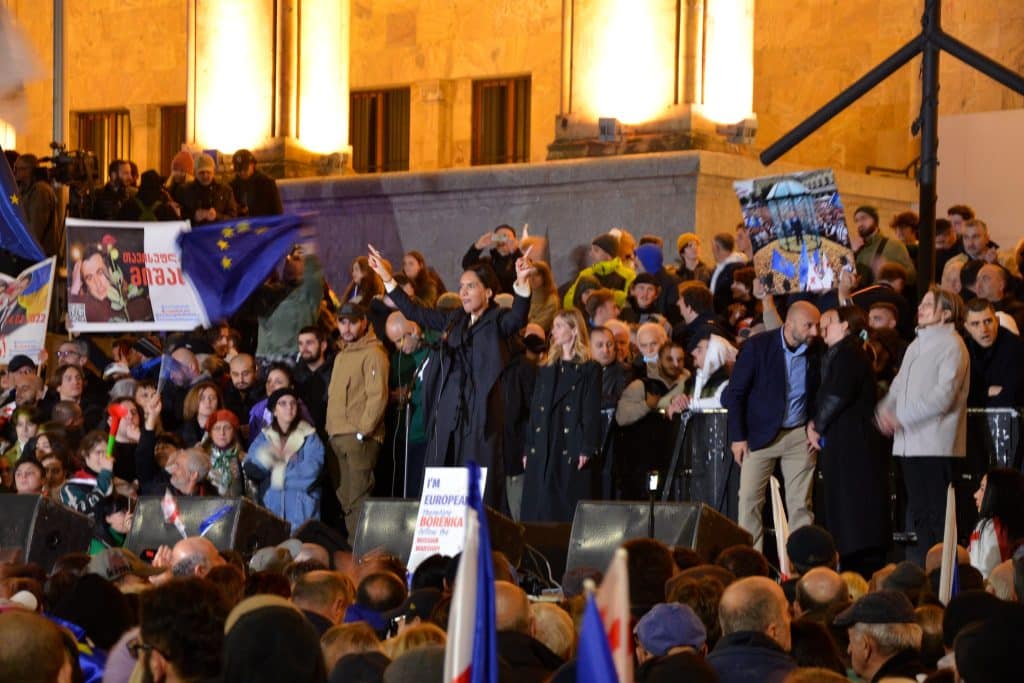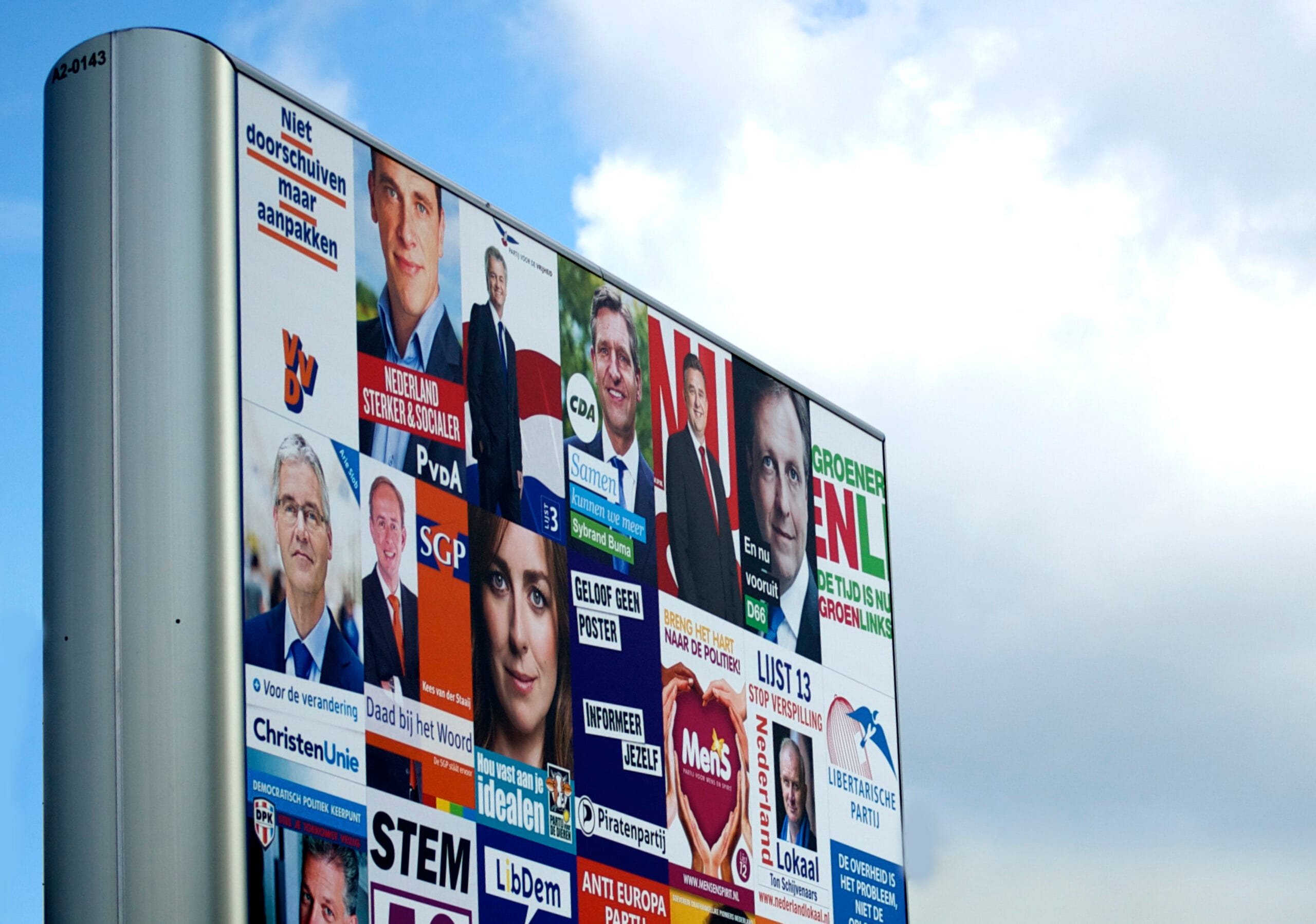The opposition gathered in front of the Georgian parliament on 28 October in protest against the conduct of the elections (Source: Flickr)
An abridged version of this message appeared earlier in the FD
Elections took place in Georgia last week - a crucial moment for the country's geopolitical orientation. The ballot ended in a deception. A combination of ballot box fraud and an unfair playing field makes it very likely that the result does not represent the choice of the Georgian people. The Georgian opposition already gathered in a major protest on Monday night, demanding full disclosure of data and a possible re-election. The West is reacting in a wait-and-see manner, calling for more investigations. If we want to give Georgian democracy a serious chance, we need to do more. At the very least, the EU and the Netherlands should not recognise these elections.
Georgia's elections were observed by a huge number of observers. While these report that the elections were "generally well organised", there are plenty of criticisms to be made. Intimidation around polling stations, violence, bribery and tampering with voting forms were widespread during voting, especially outside major cities. Local observers report disturbances at 91% of polling stations observed. Very striking was also the large difference between the Edison Research exit poll and the final result. In previous elections, this pollster was hardly wrong. Add this to structural factors such as the Very uneven media playing field, widespread clientelism and the poor access for many diaspora inhibitors- there is ample evidence that these elections have been unfree and unfairly free.
Why is it important for the EU to speak out on this? First, Georgia is an EU candidate country. The Georgian people deserve a fair chance to speak out about their future. This has been deprived here, which will permanently put EU accession on hold. Pro-Russian party Georgian Dream, which claims victory, has already shown in the past year that it does not want to take any steps towards accession and is fully committed to maintaining power. This will lead to more instability and unrest in Georgia in the future, and thus in the wider region.
Besides, if we let this pass, it is grist for the mill for politicians worldwide to manipulate elections and copy each other's tactics. Hungarian Prime Minister Orbán visited Georgia immediately after the election to congratulate fellow Georgian Dream on its 'resounding victory'. As a rotating EU president, this deliberately creates confusion and division. The combination of an uneven political playing field and disturbances on election day has previously proved effective in Orbán's Hungary in 2022, but also in friendly Serbia in 2023. The goal of these politicians is to stay in power at any cost. Georgian Dream already delicately indicated in its campaign that if they win a constitutional majority, they want to ban the entire opposition.
The EU and the Netherlands are still waiting and calling for independent investigations. How to implement this in Georgia is not clear - in the country, most institutions are under the influence of the ruling party. By not acting decisively, we are losing our self-assurance and confidence to stand for democratic institutions such as fair and free elections. Slowly but surely, the EU is losing the pillars of democracy at the expense of opportunistic politicians who use them for their own gain. Combined with disinformation flows and Russian interference - as in the elections in Moldova last week - political instability on our continent is visibly increasing.
The Netherlands and the EU should therefore not recognise these elections. Georgia has been granted candidate status and eighty per cent of the population wants to join the EU. If we consider fair elections an integral part of the EU, we cannot let the events in Georgia last weekend go over our heads. Inside and outside the Union, there are otherwise plenty of politicians ready to repeat these tricks and further erode the Union's democratic values.




